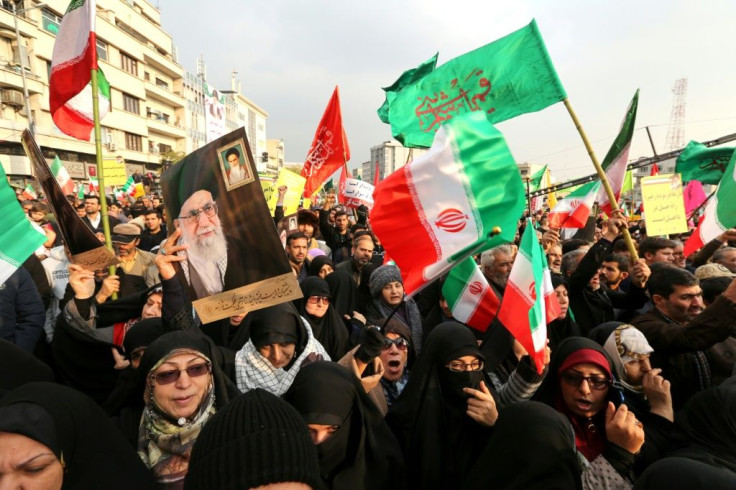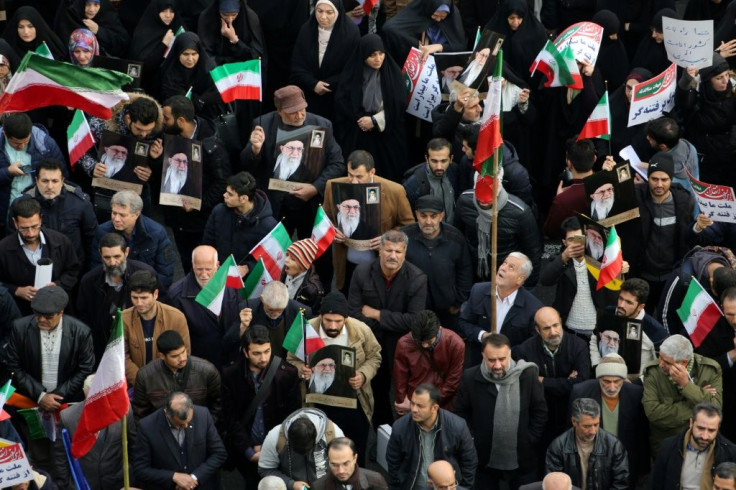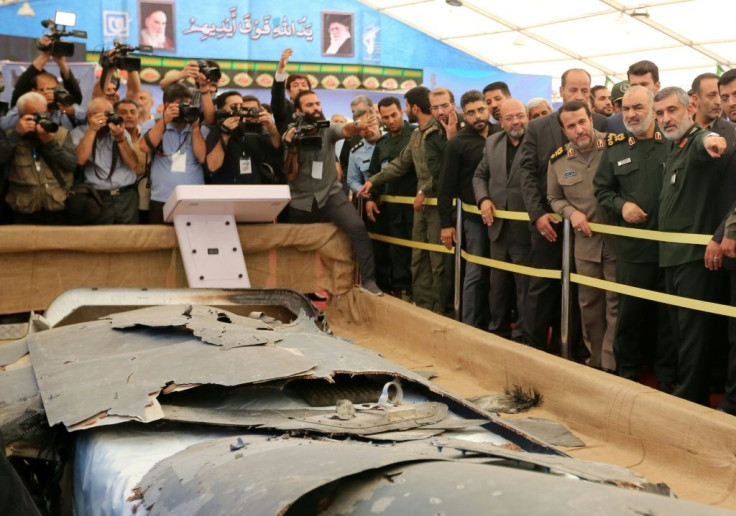Regime Supporters Rally As Amnesty Says Iran Death Toll At Least 143

At least 143 demonstrators were killed across Iran, almost all of them shot by security forces, Amnesty said Monday, as government supporters poured into central Tehran to condemn days of "rioting" that the Islamic republic blamed on its foreign foes.
"According to credible reports... those killed include at least 143 people," Amnesty International said.
"The deaths have resulted almost entirely from the use of firearms," apart from a death from tear gas and another after a beating, it added.
Amnesty, which last week gave a death toll of more than 100 as security forces stamped out protests that followed fuel price rises on November 15, said it believed the actual toll would climb "significantly higher" as it investigated.
The London-based watchdog called for world powers to condemn the bloodshed.
"The international community's cautious and muted response to the unlawful killing of protesters is woefully inadequate," said Philip Luther, Amnesty's research and advocacy head for the Middle East.
Amnesty said "verified videos show security forces deliberately shooting unarmed protesters from a short distance. In some cases, protesters were shot while they were running away".
They also showed security forces shooting from rooftops, it said, adding that the crackdown was carried out by police, Revolutionary Guards, and the Basij paramilitary force "and others".
In central Tehran on Monday, supporters of Iran's government filled Enghelab (Revolution) Square Tehran for a massive rally.
Waving the Iranian flag and banners that read "Death to America", government supporters descended on the square from all directions.

In a shock announcement, Iran raised the price of petrol by up to 200 percent, triggering nationwide protests in a country whose economy has been battered by US sanctions.
Officials say the demonstrations turned violent because of the intervention of "thugs" backed by royalists and Iran's arch-enemies -- the United States, Israel and Saudi Arabia.
"Countries like America, Israel or Saudi Arabia... don't want to see us make progress, develop and have security," said a housewife at Monday's rally.
"We support our leader and, for these reasons, they tried to put a spoke in our wheel," she told AFP.
The rally was addressed by Major General Hossein Salami, head of the elite Islamic Revolutionary Guard Corps.
"This war is over," Salami told the huge crowd.

"You have defeated the power of the arrogance," he said, referring to America. "The coup de grace has been delivered."
Long-fraught links between Tehran and Washington plunged to a new low in May last year when the US unilaterally withdrew from an international accord that gave Iran relief from sanctions in return for curbs on its nuclear programme.
In his speech, Salami issued a warning for the United States and its allies Britain, Israel and Saudi Arabia.
"You have received a strong slap in the face," Salami told them. "If you cross our red lines, we will destroy you."
Chants of "Death to the USA" and "Death to Israel" rang out as some in the crowd set fire to American flags.
On the eve of the rally, an SMS had been sent to citizens urging them to attend the demonstration, amid an ongoing internet outage imposed during the unrest.
The near-total internet blackout came at the height of the street unrest in a step seen as aimed at curbing the spread of videos of the violence.
Connectivity has returned to much of the country except for its mobile telephone networks, said NetBlocks, a site that monitors internet disruptions.
The unrest erupted hours after a midnight announcement that the price of petrol would be immediately raised by 50 percent for the first 60 litres and 200 percent for any extra fuel after that each month.
Iran's President Hassan Rouhani said the proceeds would allow his government to provide welfare payments to the needy.
During the violence, dozens of banks, petrol pumps and police stations were torched across Iran.
Officials have confirmed five people were killed, despite the toll from Amnesty and UN fears that dozens had died.
Authorities say they arrested 180 ringleaders.
The total number of people detained remains unclear, but the UN human rights office put it at more than 1,000 last Tuesday.
Rear-Admiral Ali Fadavi, deputy commander in chief of the Guards, warned Sunday that Iran would severely punish "mercenaries" arrested over the violence.
Iran has blamed the unrest on the Pahlavi royal family ousted in the 1979 Islamic Revolution and armed opposition group the People's Mujahedeen of Iran, which it considers a "terrorist" cult.
© Copyright AFP {{Year}}. All rights reserved.




















